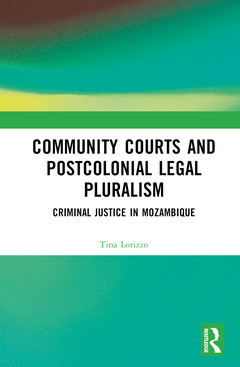Description
Community Courts and Postcolonial Legal Pluralism
Criminal Justice in Mozambique
Author: Lorizzo Tina
Language: English
Subject for Community Courts and Postcolonial Legal Pluralism:
· 15.6x23.4 cm · Hardback
Description
/li>Contents
/li>Readership
/li>Biography
/li>
By focusing on the role of community courts in Mozambique, this book offers a postcolonial perspective on legal pluralism. In Mozambique, judicial courts are distant and expensive, and legal terminology is incomprehensible to the majority of people. As such, Mozambicans continue to rely on different normative systems to resolve their disputes ? systems that have always been considered to be closer, cheaper and faster than judicial courts. This book analyses the functioning of community courts in the Mozambican capital city of Maputo. As it considers how the past shapes the relationship of the state with community courts, the book uncovers the Eurocentrism of mainstream discourses and practices of criminal justice.
In response, it develops a postcolonial account of legal pluralism. By arguing that community courts can therefore be seen as the form of an otherwise neglected local knowledge, the book discusses their overlooked importance in improving widespread access to criminal justice.
This book will be of value to scholars working in the areas of legal pluralism and postcolonialism and others with interest in criminal justice.
1. Introduction 2. Criminal Justice: The Limits of Legal Pluralism and the Possibilities of Postcolonial Studies 3. The State’s Approach to Non-State Forms of Conflict Resolution in Criminal Justice 4. Framing the Functioning of Community Courts in Maputo through Postcolonial Lenses 5. Conclusions and Recommendations
Tina Lorizzo is Director of REFORMAR – Research for Mozambique and Adjunct Professor at the Faculty of Law, University of Western Cape, Cape Town, South Africa.




